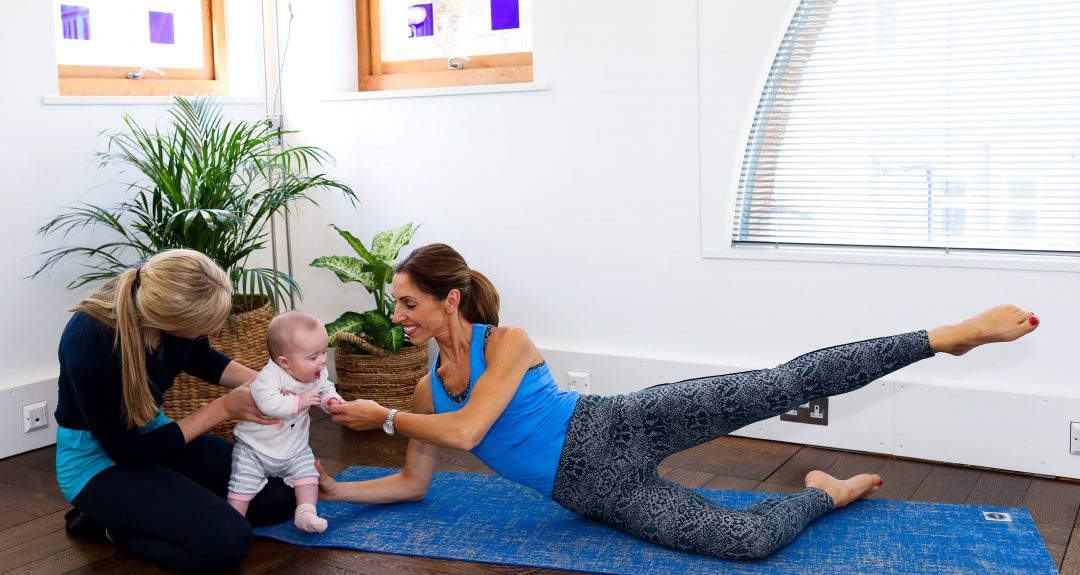Do you know that 1 in 3 women experience urinary incontinence in the UK? 1 in 2 will develop a pelvic organ prolapse after childbirth? 60% of women will have diastasis recti (tummy muscle separation) at 6 weeks postpartum and 64% of women will have sexual problems at 6 months postpartum? Whether you’re pregnant, a new mother, awaiting or recovering from gynaecological surgery or simply wanting to take control of your health and wellbeing, women’s health Physiotherapy may be what you’re looking for!
What is women’s health Physiotherapy?
Women’s health Physiotherapy is a vital component in a woman’s life in order to stay fit and healthy during pregnancy, in the post-natal period or after surgery. There are many issues with recovering after having baby that women feel are a ‘normal’ and simply have to deal with. A woman’s body goes through many changes and some issues may arise such as bladder or bowel issues including incontinence, pelvic pain, diastasis recti (tummy separation) often resulting in back or hip pain and many more.
To help with these issues a women’s health Physiotherapist will assess you and take a detailed history of your concerns and goals for treatment, including questions about bladder and bowel habits, as well as your obstetric, gynaecological and medical history. Your assessment will then be tailored accordingly to your unique presentation. This will likely involve assessment of musculoskeletal issues, as well as your back and pelvis, posture and breathing techniques, abdominal muscles for diastasis recti (tummy separation), trigger points and breathing, real time ultrasound imaging of the bladder or pelvic floor muscles, if needed. You may also be offered an internal vaginal or rectal examination to examine the skin, tone, structure and function of your pelvic floor muscles. Following an assessment, a detailed explanation of your symptoms and diagnosis will be given, and a personalised management plan will be discussed and developed according to your needs- the aim is to ensure you a speedy recovery to full health and wellbeing!
What is your pelvic floor and why is it important?
The pelvic floor is made up of muscles, ligaments and fascia, and is the base of your pelvis. Much like a hammock, it spans from your pubic bone at the front, tailbone at the back, and sit bones laterally to support your organs above from below. There are openings for these organs: the urethra from the bladder, the vagina from the uterus, and the anus from the bowels, to pass through the pelvic floor. At each opening there are muscles known as sphincters to control passage of urine, wind and faeces, and to delay emptying until it is convenient. The pelvic floor also plays a role in stabilising the spine along with your other core muscles.
During Pregnancy
Your body is pushed to the limit during pregnancy and issues like pelvic girdle pain, back, rib and shoulder pain, wrist and thumb pain are all very common as your body is adapting to the new baby bump and changes in posture and hormones.
Women’s health Physiotherapists trained in Pilates use it during pregnancy to get your muscles strong- including your pelvic floor- ready for further changes in your body and managing with all the challenges of the post-natal period. It is important to exercise during pregnancy and adapt your training to your new needs!
During the Postnatal period
Many women have issues after having children with pelvic organ prolapse, pelvic and sexual pain, separation of the abdominal muscles (diastasis recti), tears and c-section scar issues. A women’s health Physiotherapist can offer pelvic floor check to ensure you are contracting properly, they can also use a real time ultrasound machine to check this and if any treatment is needed provide this, along with re-education of correct pelvic floor function and clinical rehabilitative Pilates.
One important aspect for women after 6 weeks of having a baby that women’s health Physiotherapists are closely involved with is the safe return to exercise. Starting incorrect exercise too soon or too advanced can cause issues like prolapse, widening of the tummy muscle gap and other injuries. Women’s health Physiotherapists also treat issues like mastitis using therapeutic ultrasound to relive pain and blockages.
After surgery
Women’s health is also important pre and post- gynaecological surgery care like a hysterectomy or a prolapse repair or after a c-section delivery. This will involve scar management and rehabilitation to strengthen muscles to get you back to where you need to be.
We aim to empower every woman to understand their symptoms and guide them on their road to recovery. Our consultant women’s health Physiotherapists are specialist postgraduate trained Physiotherapists in Women’s health, all of our women’s health Physiotherapists have a strong musculoskeletal background as well as being APPI qualified Pilates Teachers. As a result, our clinicians can put the whole picture together, not looking at the pelvis or pelvic floor in isolation. Many of our practitioners are mums themselves; and most of all, all are passionate about Women’s health. Who better to help you on your journey to pain free confidence in your pelvic floor?
Written by APPI Physiotherapy and Pilates clinics
Hampstead and Wimbledon
www.APPIclinics.com

